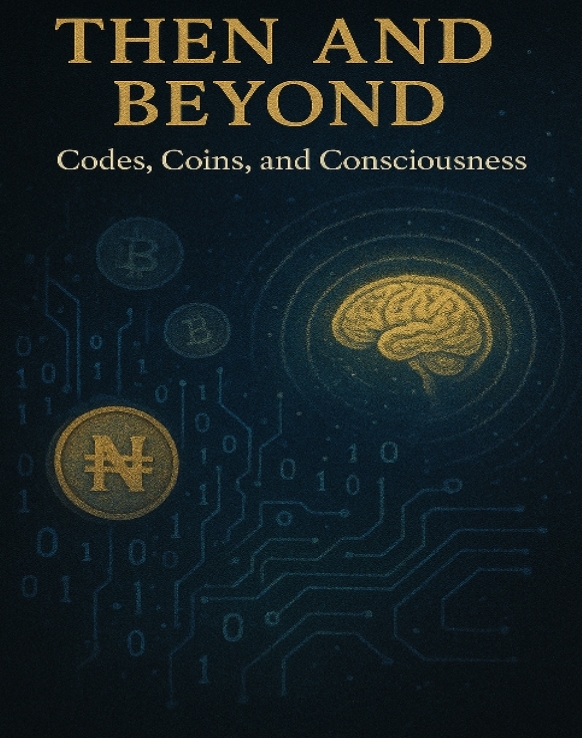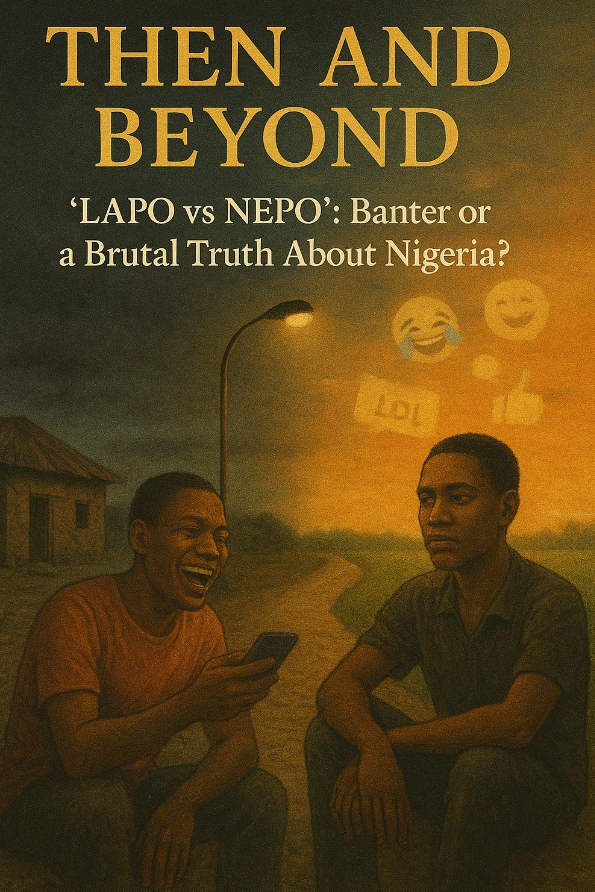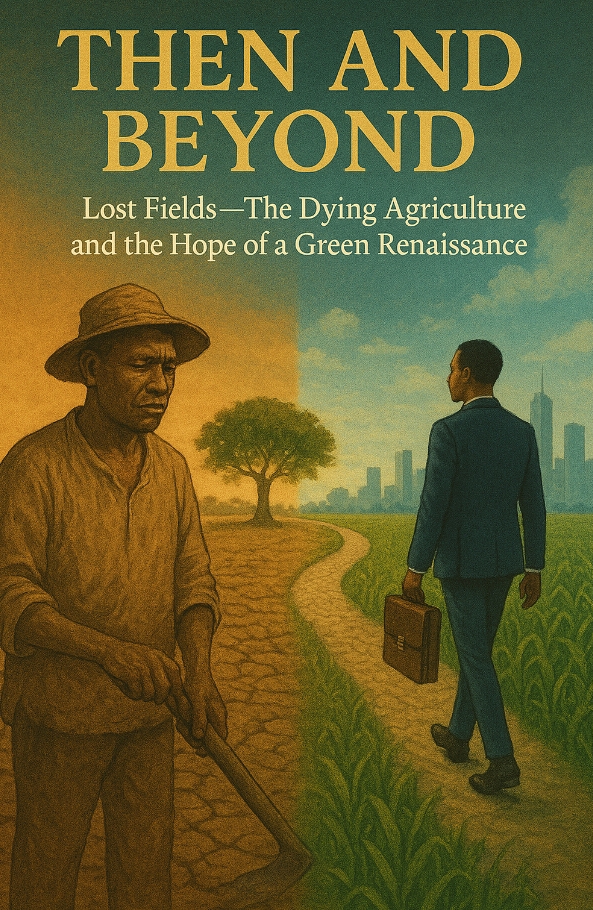Then and Beyond: Kings Without Kingdoms?

By: Oluseun FATOPE
Once, they ruled with unquestioned authority, they settled disputes, led armies, oversaw economies, and personified their people’s identity. Today, Nigeria’s traditional rulers still sit on ornate thrones and wear heavy crowns, however increasingly, their kingdoms are ceremonial, their voices sidelined, their roles unclear. In a nation governed by a modern constitution, run by politicians, and driven by digital technology, traditional rulers remain culturally relevant but politically ambiguous. Many ask: what is the place of a king in a country where the ballot, not the bloodline, determines authority?
THEN: Before the State, There Were Kingdoms
Long before Nigeria existed as a political entity, traditional authority defined governance across its diverse regions. From the palaces of the Obas in the southwest to the emirates of the north and the clan-based councils in the southeast and Niger Delta, power was localised but deeply respected. Traditional rulers upheld many responsibilities such as maintaining law and order through customary systems. They oversaw land distribution and community wealth, presided over disputes, and initiations. In many cases they are to act as spiritual and political leaders, sometimes revered as divine. They were not only rulers but institutions unto themselves.
With the advent of British colonialism in the 19th century, Nigeria’s traditional systems were altered. The colonial administration implemented Indirect Rule, particularly in the north and parts of the west, using existing structures of authority to enforce foreign control. While some rulers gained prestige and power under the system, others became mere tools of the colonial agenda, stripped of independent decision-making and loyalty from their people. In the southeast, where authority was more decentralised, the British imposed warrant chiefs, often individuals with no traditional legitimacy. This led to conflict, especially among the Igbo, and a breakdown of trust in imposed leaders.
NOW: No Place in the Constitution.
In contemporary Nigeria, the 1999 Constitution does not assign any official governing role to traditional rulers. They are not part of the legislative, executive, or judicial branches. Their power is neither elected nor legally binding. What they retain is influence, not authority and it’s a known fact that influence is fluid, fragile, and often dependent on personalities, not policies. Some royal fathers sit on state councils or serve as cultural ambassadors. But many are limited to ceremonial roles: attending weddings, blessing roads, offering advice to politicians who may or may not listen.
Still Trusted at the Grassroots
Despite legal limitations, traditional rulers remain deeply respected in many communities. In rural areas especially, they are often the first point of recourse in disputes. Where government presence is weak, traditional rulers fill the gap, not with budgets, but with legitimacy. Their closeness to the people allows them to function as stabilisers in times of unrest, sometimes preventing conflicts before they escalate.
However, the moral high ground of many traditional rulers is increasingly questioned. The process of selection has become politicised in many communities. Some royal seats are now openly contested in courts and governors have been allegedly interfering in succession. Others have been accused of partisanship, openly endorsing candidates during elections, accepting controversial gifts from politicians, or acting as middlemen for land sales and oil deals. This erosion of neutrality weakens their credibility. I can actually assert that to me they are no longer sacred kings, just cultural figureheads in agbada and beads. Meanwhile, urban youth, often alienated from cultural heritage, view traditional institutions with a mix of nostalgia and irrelevance. In an age of cryptocurrency, reality TV, and social media governance, the throne seems… disconnected.
BEYOND: Relevance Through Reinvention
If traditional rulers are to remain meaningful, they must redefine themselves; not as remnants of the past, but as bridges to a more inclusive, culturally grounded future. It is very needed that they start taking leadership in community education and youth mentorship. A king who presides over cultural festivals but also funds school projects or convenes town hall meetings is more likely to resonate with the next generation.
There is an ongoing debate about whether traditional rulers should have constitutionally defined roles. Some argue they should be integrated into local governance, particularly in dispute resolution, rural development, and security. Others warn that formalising their power could create parallel governments, undermine democracy, or revive harmful hierarchies. Legitimacy doesn’t need to replace legality, it can complement it. To regain public trust, it is compulsory for traditional rulers to hold themselves to high ethical standards. Transparency in succession processes should be implemented, avoiding open political partisanship. The throne must be seen not as a ladder to wealth or power, but as a sacred duty to community and culture. Only then can it retain moral force.
The Need to Embrace Modern Tools
In a digital age, traditional rulers cannot afford to be analog. The next phase of rulership can be hybrid where wisdom wears both agbada and WiFi.
“The Ooni of Ife: Tradition with a Tech Touch”.
Ooni Adeyeye Ogunwusi has shown what a modern traditional ruler can be: active on social media, outspoken on youth inclusion, and involved in education and entrepreneurship projects. His reign bridges Ife’s ancient heritage with a modern face.
“The Emir Sanusi Saga: Reform vs Power”.
Muhammadu Sanusi II, former Emir of Kano, used his platform to challenge child marriage, educational neglect, and elite waste. He was revered by many but eventually dethroned; a reminder that speaking truth to power comes at a cost, especially when the throne sits on political landmines.These examples reveal both the potential and the perils of modern kingship.
CONCLUSION: If We Let it, the Crown still Matters.
In a country burdened by broken systems, corruption, and disconnection from heritage, the traditional ruler remains one of the few community symbols that can unify across religion, class, and politics. But kings must no longer rest on legacy alone, they must earn relevance in each generation, confront injustice where elected leaders compromise, and serve as moral compasses when the courts and parliaments falter. The crown may no longer command armies or write laws. But it can still shape hearts, uphold values, and protect the soul of a community.
Kings without kingdoms? Perhaps. But not kings without purpose, if we dare to reimagine their role, not as competitors with the state, but as conscience keepers of the nation.
Columnist’s note: Then and Beyond will be paused till the following semester.








